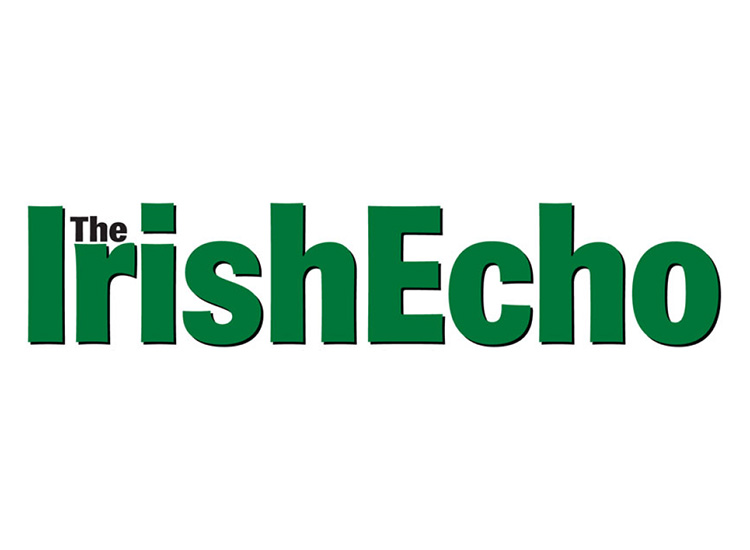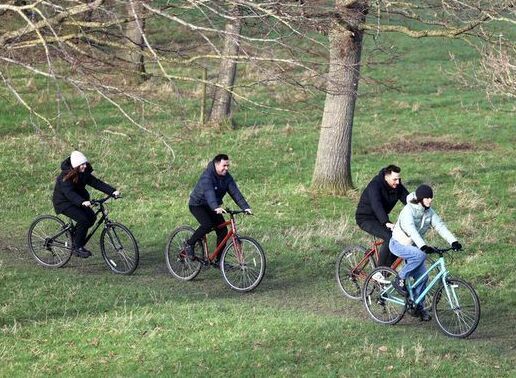The Lost Brothers will play the Irish Arts Center on next Monday.
PHOTO BY DES MCMAHON
Music Notes / By Colleen Taylor
Ten years ago, two rock stars gave up major labels, large-scale tours, and their amps for harmonies and acoustic guitars. Mark McCausland and Oisin Leech, formerly of indie rock bands the Basement and the 747s, became the Lost Brothers in 2008. Think Simon and Garfunkel meets Altan, and you’ve got the Lost Brothers, an Americana folk duo with a subtle inflection of new age Celtic reverie. At the end of January, the Lost Brothers released their fifth album, “Halfway Towards a Healing,” and they embark on the U.S. leg of their tour this month.
The duo released their debut album, “Trails of the Lonely” in 2008, but it was their sophomore album, “So Long John Fante” that earned them national attention, including positive reviews from the Irish Times and Irish Examiner. This second album is a standard but colorful old time Americana and country record, evoking the sounds of the Old South and qualifying the Lost Brothers as one of the leading Eirecana sounds in Ireland. The duo stayed busy, quickly producing two more albums shortly after “So Long John Fante,” including “The Passing of the Night” (2012) and “New Songs of Dawn and Dust” (2014).
What’s best about their most recent album, “Halfway Towards a Healing,” is that it diverges from standard Americana. These songs take acoustic folk and blues and give them a fantastical finish—there’s a sense and sound of magic in the arrangements that extends beyond what the genre traditionally entails. Take, for example, “Where the Shadows Go,” a song whose title directly conjures the phantasmic and whose style matches the ghostly lyrics. Distant trumpets haunt the instrumentation of this song, as the vocals linger through soft echo effects. “Where the Shadows Go” instrumentally effects a conversation with a ghost, vocals and distant brass instruments in a conversational call and response—one language semiotic, the other otherworldly. Another favorite is “Summer Rain,” owing to its half melancholy, half cheerful melody. This song is deliberately, almost egregiously slow, but it affects a physical calm on your body, evoking that slow feel of life in the countryside.
Although for the most part, this album is traditional American folk throughout, it also embraces some global sounds, from the Asiastic in “Echoes in the Wind” to Afro instruments in the opening of “Halfway Towards a Healing.” Like everything else on the album, though, this is very subtly done—almost unnoticeable—but the details elevate the style of their music, pushing it toward the innovative. “Cry for a Sparrow” is a more traditional Americana song, with beautiful, intermittent harmonica solos. Finally, the title track is a whimsical country song with some of those ghostly inflections one hears in “Where the Shadows Go.” On this track, more than any other, I hear the duo’s rock backgrounds crop up in understated ways, almost sounding like Nick Cave and the Bad Seeds—but always tapered by the Brothers’ sweet, easy harmonies. This latest album proves once and for all it was a happy day for music when lost musicians McCausland and Leech gave up the Irish and British rock world for the quiet life of American folk.
The Lost Brothers will play the Irish Arts Center on Monday, March 12, then head to Texas for St. Patrick’s Day. Find out more and get tickets








